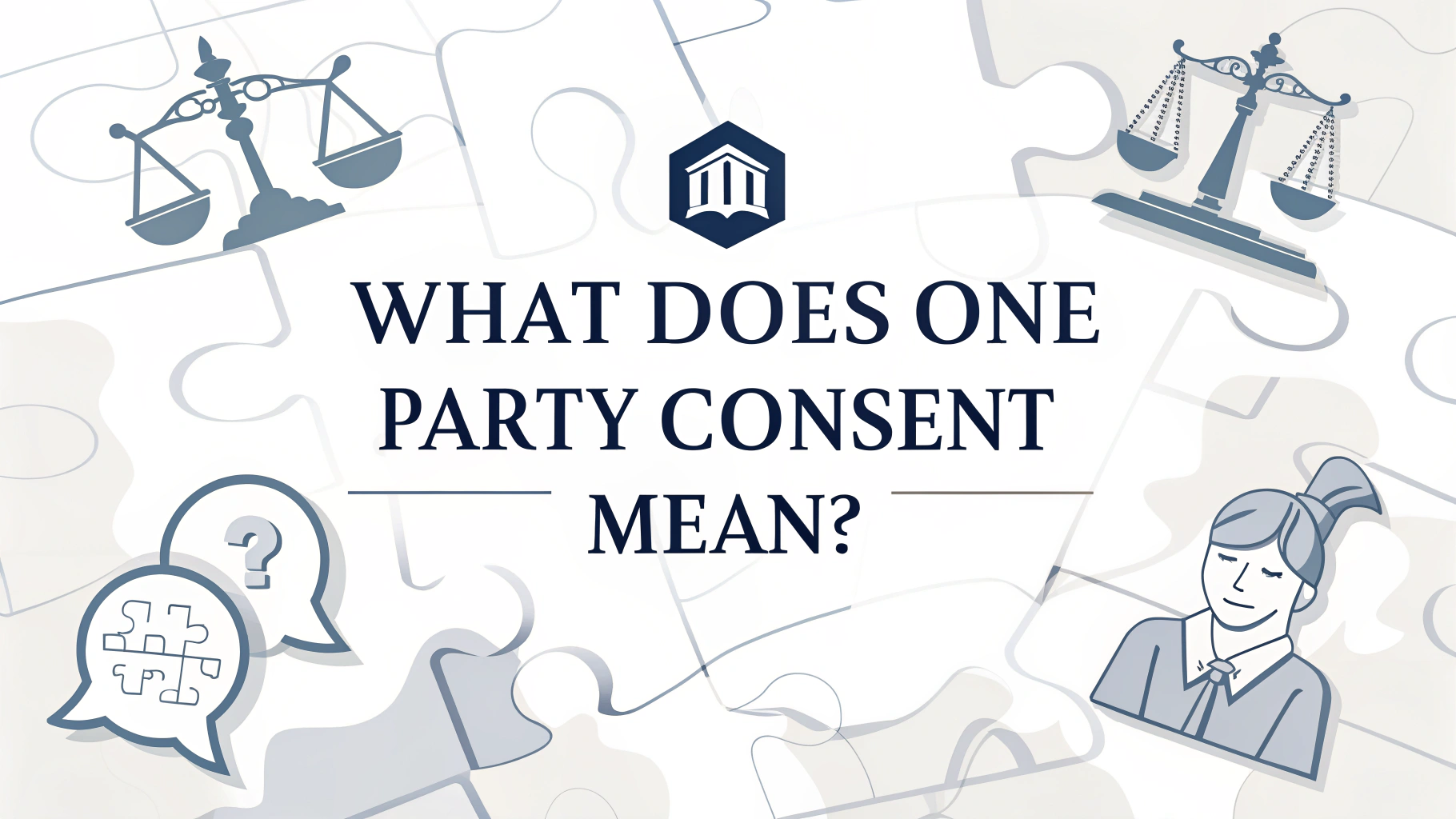One party consent means that in a conversation, only one person involved needs to give permission for the recording to be legal. This typically applies to phone calls or in-person conversations and varies depending on jurisdiction. If you’re part of the conversation, you can legally record it without informing the other person—if you’re in a one-party consent state or country.
This concept is especially important for journalists, private investigators, and anyone using audio to text tools to transcribe recorded conversations. Misunderstanding the law can result in criminal or civil penalties.
One Party Consent vs. Two Party Consent: What’s the Difference?
In one party consent jurisdictions, only one participant must consent to the recording. In two party (or all party) consent jurisdictions, everyone involved must agree to the recording.
For example:
- One party consent: You can record your own phone call without telling the other person.
- Two party consent: You must inform and obtain agreement from everyone on the call.
This distinction is critical, especially when you record across state or national boundaries.
Is One Party Consent Legal in My State or Country?
In the United States, federal law allows one party consent, but individual state laws may differ:
- One party consent states include New York, Texas, and Illinois.
- Two party consent states include California, Florida, and Pennsylvania.
In Canada, all-party consent is required under privacy laws.
In the UK, one party consent generally applies unless the recording is shared or used unlawfully.
Always check local laws before recording.
When Is Recording Without Consent Illegal?
Even in one party consent areas, recordings may still be illegal if:
- You’re not a participant in the conversation.
- You’re recording in a place with a reasonable expectation of privacy (e.g., restrooms).
- The recording is used for blackmail, harassment, or commercial misuse.
Illegal recordings can result in fines, lawsuits, or criminal charges.
Can I Use One Party Consent Recordings in Court?
Yes, recordings made legally under one party consent laws can be admissible in court. They are often used in:
- Civil cases (e.g., workplace harassment, verbal contracts)
- Criminal investigations
- Employment disputes
However, secretly recorded conversations may still be challenged if they violate ethical standards or were obtained deceptively.
How Does One Party Consent Affect Audio to Text Transcriptions?
One party consent laws also apply when you use audio to text tools to transcribe conversations. If you’re legally allowed to record the conversation, you’re also allowed to transcribe it using AI or transcription services.
⚠️ However, if the recording was illegal, then the transcription might also be inadmissible or expose you to liability.
Can Employers Record Employees Under One Party Consent?
Employers may legally record workplace conversations if they’re a party to the conversation or if it’s a one party consent state. However, monitoring without notice can still violate labor laws or company policies.
It’s recommended to:
- Include recording policies in employment contracts
- Clearly notify employees if monitoring occurs
Tips for Staying Legal When Recording Conversations
To stay compliant with one party consent laws:
- Always confirm the law in your jurisdiction and the other party’s location.
- Inform participants if in doubt.
- Avoid recording in private spaces without permission.
- Use reputable apps that comply with privacy standards.
Conclusion: Know Your Rights Before You Record
Understanding what one party consent means is essential in today’s digital world, where recording and transcribing conversations is easier than ever. Whether you’re capturing a phone call for reference, using audio to text software, or gathering evidence for a legal dispute, knowing the laws that govern consent will help you avoid costly mistakes and protect your rights.


